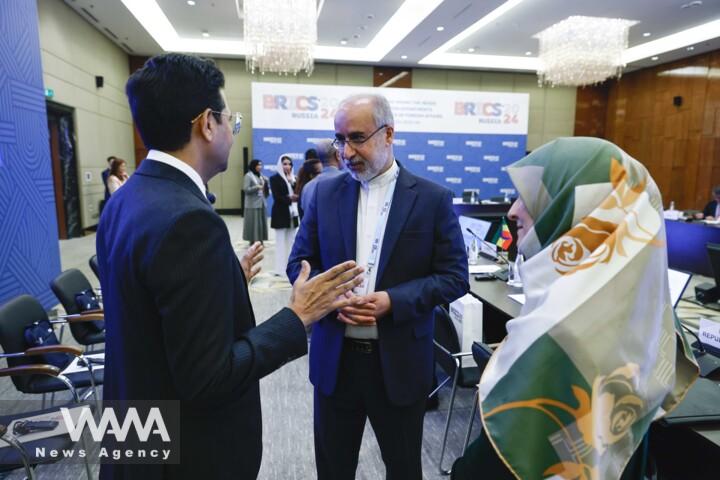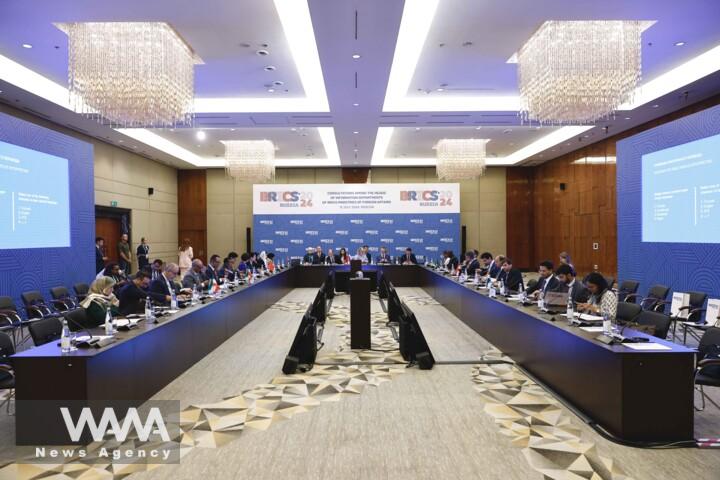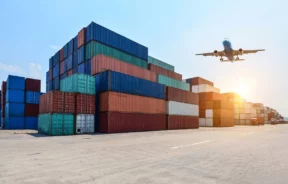Iran Proposes the Formation of a BRICS Information Network at Moscow Meeting
WANA (July 13) – During a meeting of heads of information departments and spokespersons from BRICS member countries, Iran’s spokesperson for the Ministry of Foreign Affairs and head of the Public Diplomacy and Media Center outlined the Islamic Republic of Iran’s proposals on the role of BRICS countries in the media and information sectors. These proposals aim to achieve objectives such as realizing a just and multipolar world.
In his speech at the Moscow-hosted meeting, Nasser Kanaani presented Iran’s perspectives on the agenda of the meeting. Topics included collective actions by BRICS media to strengthen the group’s international standing, deepening relationships between national media of member countries to create a framework for a shared information space, leveraging digital diplomacy and artificial intelligence capabilities in public diplomacy and foreign policy, and combating the spread of fake news and misinformation.
The Need for a BRICS Information Network
Kanaani emphasized the necessity of establishing a BRICS Information Network to facilitate information dissemination and exchange among BRICS member countries. He suggested that this network could counteract Western opposition to BRICS countries’ free media activities, combat misleading and fake news campaigns, and address the negative impacts of unilateral sanctions and coercive measures against member countries by highlighting the various effects of sanctions, especially their human rights implications.
He added that it is essential to strengthen media coordination and cooperation among member countries by connecting their information and news networks and creating mechanisms for sharing news in areas of mutual interest.

WANA-Nasser Kanaani, Iran’s spokesperson for the Ministry of Foreign Affairs at BRICS Summit
Addressing Western Media’s False Campaigns
Kanaani stressed that media diplomacy is now an integral part of diplomatic activities since the media is the most powerful tool for spreading countries’ views, messages, and positions through diplomats.
He continued, stating that while dominant powers in the past used military force and coercive actions to achieve their goals, in the present era, media and social networks capture the hearts and minds of audiences through messages rather than force.
The head of Iran’s Public Diplomacy and Media Center noted that Western media outlets create false media campaigns to mislead public opinion. He argued that BRICS countries could enhance multilateralism and counter Western media’s unilateralism by deepening media relations and mobilizing media and digital diplomacy capabilities.
The Critical Role of Media in Promoting Multilateralism
Kanaani stated that the most crucial element currently in the path of media justice and integrity is the “cycle of media trend-setting and highlighting” to advance multilateralism and create a free, fair, and constructive media flow.
Effective Coverage of the Upcoming BRICS Summit as a Collaborative Exercise
Kanaani further discussed the agenda of creating joint mechanisms to utilize the media capabilities of BRICS member countries to achieve the group’s goals.
He suggested that joint actions promoting the goals and media coverage of the next BRICS Summit in Kazan, Russia, could be a collaborative exercise to mobilize members’ media capacities toward common objectives.
He highlighted that the Islamic Republic of Iran, as one of the leading countries in West Asia in media development, is ready to use its media capabilities to enhance BRICS’ international status.

WANA-BRICS Summit2024, Moscow
Read More:
The Ministry of Foreign Affairs spokesperson arrived in Russia on Thursday to participate in the meeting of the foreign ministries’ spokespersons of BRICS member countries.
During the one-day conference held in Moscow on Friday, BRICS diplomats discussed the role of the media in strengthening BRICS’ international standing, creating a shared information platform, mechanisms for media coverage of the BRICS Summit in October 2024, and other topics of interest.
Kanaani also met with his counterparts from Brazil and the United Arab Emirates on the sidelines of the meeting.
The spokesperson also visited the Iranian Language and Culture Center at the Moscow State Linguistic University and discussed expanding cultural cooperation and strengthening Persian language programs in Russian universities with Alexander Palishchuk, the center’s director and a Russian Iranologist.
As the rotating chair of BRICS, Russia will host around 250 events in 2024. The upcoming BRICS Summit, the group’s most important event, will be held in Kazan from October 22 to 24, 2024.
The BRICS group was established in 2006 with the participation of Brazil, Russia, India, and China. South Africa joined in 2010, changing the group’s name from BRIC to BRICS.
In January 2024, alongside the efforts of the diplomatic apparatus in Iran’s thirteenth government, the Islamic Republic of Iran, Egypt, Ethiopia, Saudi Arabia, and the United Arab Emirates officially joined this alliance.
According to the Vice President of the Russian Federation Council, Saudi Arabia’s participation in the meetings has been minimal, as Riyadh is still considering its involvement in the BRICS group.












